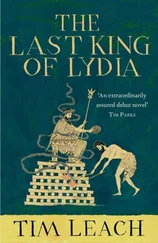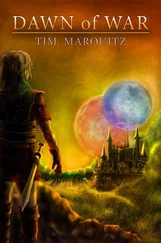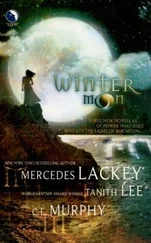He was half turned away from her, but she knew him at once. Emaciated legs thrust through the bars and dangling towards the ground as though yearning for the earth they could not touch. His hands working over the links of the chains that bound his hands – not in the way of one searching for a weakness, but the way a child may handle a toy, or a seer a charm of good omen. But his eyes alive with light and life, unlike those of so many of the listless figures about him. Arite had seen enough men taken captive to know it, to tell when one had decided to fight, to live.
He was so lost in that struggle that he did not seem to see her at first. Even when he lifted his head and looked straight at her, he did not seem to see her. Perhaps he took her for one of those tricks of the mind seen by the dying, the starving, the fever-struck. For how many times must he have conjured her in his mind in the time he had spent in that cage?
It was only when she stretched a shaking hand towards him that he saw she was no phantom or memory. And he was smiling then – madly, bravely – at this victory, to see her again.
How easy it was to forget the betrayal with Kai, she thought. To wish only for a new beginning, for he was there once more, the hero she had fallen in love with long before. She reached out to him, and took his hand.
A moment where they held each other, and all was as it should have been. But something passed to him with that touch – a message carried in the quickening of the blood, a treachery spoken through skin.
Better if he had shouted and raged and wept. But his eyes drifted away, a hollowing to the shape of his body, a little nod of acceptance, as his fingers fell away from hers. Age and weariness settling upon him once more like snow upon the steppe.
The creak of the cage door, the tap of a club against the small of her back. Inside the cage then, stepping over the living and the dead, feeling the chains close about her wrists as she and Bahadur were bound to each other once again.
Lucius waited, as he imagined a condemned man might wait for his execution. Hunched forward on the camp stool in a centurion’s tent, thinking only of what must be done, as the rain fell upon the calfskin tent like a hand upon a drum.
When he had been taken as captive by the Sarmatians, Lucius had not expected to live long. For he had been told by his commanders in the Legion that the barbarians rarely took prisoners. On those nights about the campfires, he had waited for the cut of the knife against the soles of his feet, the point of an arrowhead driven up under his fingernails, the knocking of a sword’s pommel against his teeth. He waited for the questions to be asked, of Rome and the Legion, or for there to be no questions, for the torture to be for amusement alone. But it had not come, not even when they came to that great encampment, the thousand fires of the last Sarmatians gathered together. Lucius had been certain then that it would be the time to die, that he had been kept for some special torture. To be raised up above a slow fire, to have his guts unspooled and gifted to the gods, his skin ripped from his body and raised upon a banner high above the barbarian horde. Yet perhaps they had worked instead towards this particular punishment, to have him try to strike an impossible bargain. To reason with a vengeful god.
There were others sharing the tent with him, men of his rank. One had come to him with a cup of wine, another flashing dice and a smile, the last two with a simple salute and a hunger in their eyes for stories from across the water. And one by one, as quickly as he could, he had turned them away. They left him alone, muttering to one another, no doubt cursing him as arrogant, aloof. They had not been his friends before, and they would not be now.
It did not matter. All that mattered were the words, the words that he would speak, the bargain he would strike. In silence, he sought to practise those words, time after time finding himself close to finding the right ones, the beautiful speech that might incline a god to mercy. But it was akin to remembering a dream – those rules and images that had once seemed so clear now impossible to recall. The longer he thought, the more the words seemed to slip away from him.
Footsteps drawing close, the hard rhythm of soldiers marching in step, and he knew that there was no more time left to think. Only to trust to a warrior’s instinct, that when the time came he would do what must be done.
The rustle of the tent flap, the Praetorians standing there before him. The other centurions, previously seeming so eager for his company, drew away and busied themselves about their own errands, eyes to the ground. For the Praetorians only came to summon a man to the Emperor, or to his death.
Their captain stood before him, eyes hard beneath the red-crested helm, the Praetorian symbols of wing and lightning upon his armour. ‘Come,’ he said. ‘It is time to go.’
As they moved through the camp, all about him he could see the signs of the Legion readying itself for the march. Out from the stone walls of Aquincum and gathering upon the banks of the Danubius, the camp was alive with a terrible energy, of knowing that their Emperor was close enough to see, almost close enough to touch. Yet still Lucius felt a prisoner – his weapons stripped from him, marched in close order through the camp, feeling the eyes of hateful, envious men upon his skin as he was led to the appointed place at the appointed time.
Soon, the Emperor’s high white tent was looming before him, like a marble monument of Rome carried out to its frontier, and the Praetorian centurion stopped them there, stared wordlessly into Lucius’s face. A silent interrogation, looking for some mark of madness or treachery, the sign of the fanatic or the assassin.
Whatever silent answer Lucius gave, it seemed to satisfy the Praetorian. ‘Walk five paces inside,’ he said. ‘No more, no less. Kneel before him, and stand only if he commands it. Even if you stand, do not look at him. Never look at him. Address him as “Caesar”. Think very, very carefully before saying anything that is not “yes”, or “no”, or “Caesar”. Is that understood?’
‘I understand, sir.’
‘Good.’ The rustle of calfskin as the tent flap lifted, the scent of wine and incense flowing from within. And then, in a softer tone, the Praetorian said: ‘Good luck.’ One soldier to another, wishing good fortune before the battle.
Then another voice was speaking from within – speaking of him, calling his name, and it was time to step inside.
The first step was easy, from the cold into a place of warmth and brightness. Too bright, at first – the torchlight sharp against his eyes, the reflected glitter of gold like sunlight upon a polished shield, and so a moment’s pause before the second step. The soldier’s rhythm was gone then, wavering and wandering off the straight, parade-ground line he sought to walk.
At the third, some thick and cloying scent filled his nostrils – some perfume from a distant land, but to him the smell was redolent of the battlefield, and left the taste of death upon his tongue. Simple instinct sent him searching for the source, and his eyes went where they should not have. He saw greying skin, rheum-reddened eyes, a mouth twisted in pain. An old man sat in the golden seat of a god, it seemed at first. And it was only when he saw the purple cloak, the lines of the face so familiar from statue and monument, that he realised he was looking upon the Emperor himself.
Those dull eyes snapped to life then, a mad and brilliant gaze. And Lucius took his fourth step like a man gutted on the battlefield, already bowing forward, hands clutched close to the belly. At the fifth, he sank gratefully to his knees.
Читать дальше








![Стюарт Слейд - Воины зимы [Winter Warriors ru]](/books/401383/styuart-slejd-voiny-zimy-winter-warriors-ru-thumb.webp)



